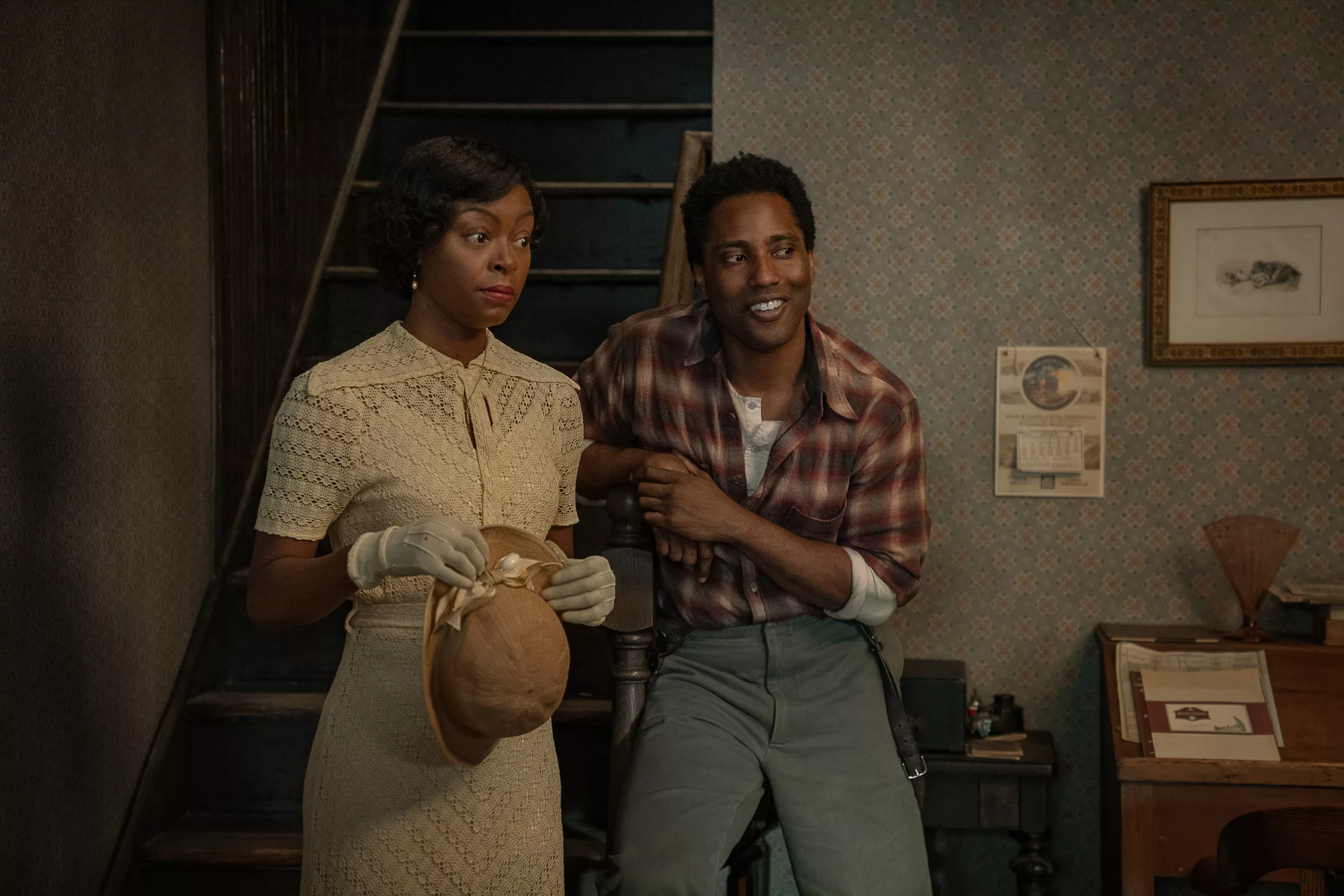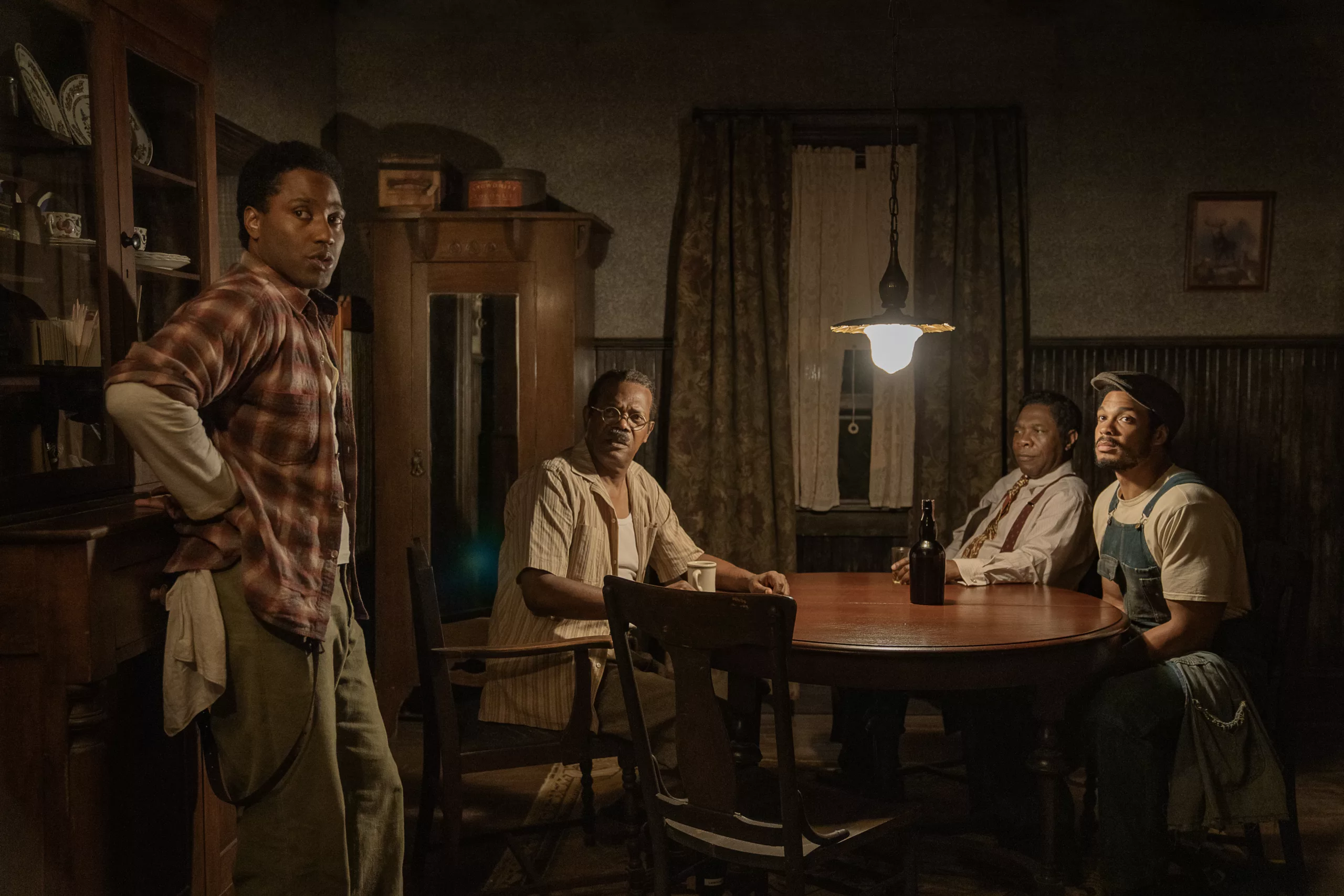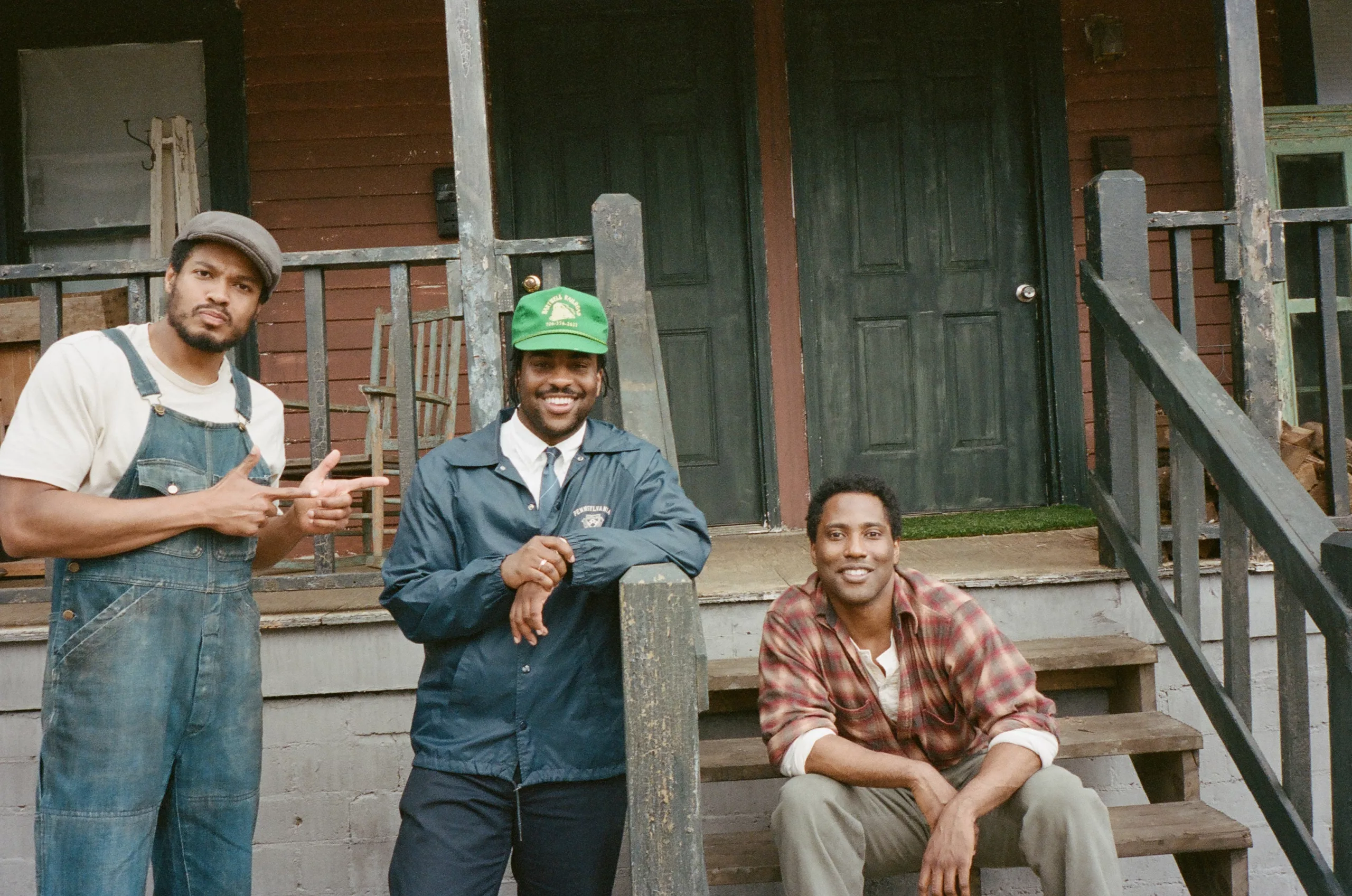Note: This piece was filed in conjunction with the Telluride Film Festival and run this week with the theatrical release of Netflix’s “The Piano Lesson.”
I was one of the lucky ones to witness the original Broadway production of August Wilson’s The Piano Lesson, which was a pure revelation. Now, in 2024, in a version adapted for the screen by first-time director Malcolm Washington (son of Denzel Washington, who produces), audiences will be transported to Pittsburgh and its colorful characters through the artistic prowess of John David Washington as Boy Willie and Danielle Deadwyler as Berniece. Both turn in the performances of their careers.
After its enthusiastic premiere at the 51st Telluride Film Festival, the Washington siblings and Deadwyler broke down sibling rivalry and the genius of August Wilson through the world of “The Piano Lesson.”
What do you think is the piano lesson for all of you regarding generational wealth, which is not only monetary but also emotional?
Malcolm Washington: I’ve come to realize I’m one part of a much larger piece in my lineage. I’m grateful to every day I get to carry pieces of my Great, Great, Great Grandparents from the South to Los Angeles. I’m the accumulation of all of their decisions and sacrifices, and I live in that moment now.
Danielle Deadwyler: Everybody wants to be given greater nutrients from what they’ve been reared on. What does it mean to be on land? Who gets to own it? Who gets to reap its benefits? And that is deeply connected to how we practice our worship and honoring of who was here before us and how they’re aiding us.
John David Washington: Honestly, I want to think about my grandparents and my experiences with them–their patience and how they carried themselves. The way my Uncle Woodson communicated the kind of man he was. He can chop wood and build a house, but he could tell you he loved you. So, I want to be able to take that to the next level, to the next generation, to be able to carry that kind of patience, that kind of love, that kind of will, to be whatever you need for your family, the way my grandfather sacrificed and was for his family. That’s what I think about when I think of the piano lesson legacy.
Was there a particular reason why you started the prologue of the film with such a dark tone visually? Of course, the play is all done through dialogue.
MW: Of course. So, with the prologue, we wanted to reset expectations. We wanted to introduce this story in its own context. There’s such a strong kind of conceptual story of American reclamation, Black reclamation, and retelling of our stories. So starting on the 4th of July, red, white, and blue set that kind of tonal beginning and let the audiences know, “Hey, this is what the story is about.” This is how we’re starting this day. We’re reclaiming something on the most American day of it all. And that’s like the flag that we put in the ground.

Let’s switch to the sibling part of the story because it is definitely a vibe.
JW: It was real. It was.
MW: There was a day where they were going at it at the end of the day; he (John David Washington) got bloody.
What do you mean he was bloody? I need context.
DD: I was doing what my director told me to do. That’s what I was doing. Some of those battle moves (jokingly).
MW: It was a beautiful scene at the end of the first act, after Bernice’s monologue about the piano. They’re going at it. She starts hitting him, and Doaker (Samuel L. Jackson) breaks it up. Watching them do that live was incredible. Like, oh my goodness, I would pay to watch that again to the point where they were going at it, and I made them do it all day because I just enjoyed watching. They were locked in and I think it came out pretty beautifully.
JW: Listen, we do our own stunts around here, alright? That’s how much we care. We got this. That’s all I’m saying [everyone burst into laughter]
DD: I just want people to know I look little, but….
JW: The fist is mighty.
DD: (jokingly) I don’t know what you’re talking about.
I’m the oldest of my siblings, so I know Berniece very well. You two were lit like a Roman candle, and honestly, I feel this is your best work to date. But how did you achieve that intense sibling rivalry vibe?
DD: I think we all … we kind of know it. I’m number three out of four, and it’s four of them (meaning the Washington siblings). You just kind of naturally know what that experience is, even though it’s not that trauma or terror behind it. You know, Black life. You know the difficulties. You know the tensions. You know the buttons. We just jumped in with all that deeply visceral love that is aching to get out.
JW: Yeah. I would like to piggyback on that because the foundation of it, to me, was about love. I believe he deeply loves his family. In the communication, it is like, let’s get it out. Let me provoke her in a way. Oh, you want to act like you acted differently in Pittsburgh, but this is not what you were like in the South. I haven’t seen my family in three years. I’ve been locked up. I don’t know if I’m ever going to see them again. So that it’s like a brazen spirit he’s coming in with. August Wilson gave us that opportunity, and these words are where we get to speak this poetry. I mean, my goodness, it’s the role of a lifetime to be able to exercise his thoughts and adapt and apply them to my own life and my interpretation. It was just a dream come true.

That scene where you were walking back and forth was like you got possessed.
DD: There are two different possessions, right? It’s like he’s awakening from one life and riding another one, and then hers has to be induced in another way. We talk about ecstasy a lot. This Black ecstasy is desired. How are we getting to it? It’s a rough thing to access. It’s a different experience for a Black man to get to it than a Black woman. It’s a different experience to get to it in the ‘30s, the ‘40s, the ‘50s, as opposed to presently. And so, everybody wants this similar thing, but how do you access it? That’s the question. And so, possession is so interesting.
Talk to me about the juke joint scene. I loved how you took it out of the confines of the living room and gave it a whole different world. But, I have to say I was a little salty about Grace not having more screen time.
MW: In doing the adaptation, one of the first things I learned about was this place, the Crawford Grill, a watering hole in the Hill District of Pittsburgh. If you were around then, you went to this place, and we wanted to honor and tell the story of all those people. So, in moving that scene to the Crawford Grill, I was trying to reach the neighborhood that fed me in doing this adaptation, honor them, and show those people in that neighborhood we see you, and we love you, and here’s your story. So, that was a big reason to take it out of there and give this its whole thing. Oh, and let’s also give Miss Erykah Badu (who plays a singer in the bar) some love.

The Piano Lesson and Fences are two of his most popular and well-known pieces, but what are some of his that you hold dear to your heart that most people wouldn’t bring to the forefront or that people don’t automatically think of when they think of August Wilson?
MW: So, I don’t think people necessarily understand his (August Wilson) interest in the genre, mysticism, and that element of African-American life. I recently saw one of his plays, King Hedley, which was amazing. A friend of ours, Aaron Jennings, played King and did a brilliant job. So shout out to him. But the whole third act was just so beautiful, and it’s a story I hope people will get to engage with soon.
JW: It’s more of a personal relationship with me because I was in Two Trains Running. I saw a production in Atlanta, and my Mom (Pauletta Washington) was in it, directed by LaTanya Jackson (Samuel L. Jackson’s wife). Seeing my Mom up there getting into her artistry in a role like that, I thought it was pretty cool to witness.
August Wilson doesn’t use a lot of women in his plays. It’s usually one or two. But, the one or two that are there, you see them, and they make the most of what they’re given. How did that resonate for you, knowing that fact?
DD: I’m sitting with that a lot. I know many different women who have worked on the plays and readings with him. And, it’s a male perspective. Patriarchy is present in all of our lives in a certain way. I like that he (August Wilson) is a masculine man dealing with things centered around who he is and how they deal with the world. Of course, it brings us to the point where we know women are significant, sexualized women are significant, and children are significant–but how is masculinity dealing with femininity? That’s a huge part of it, and it is critical for how I look at things.
The Piano Lesson is in theaters this Friday, November 8th, before being released on Netflix on November 22nd.

